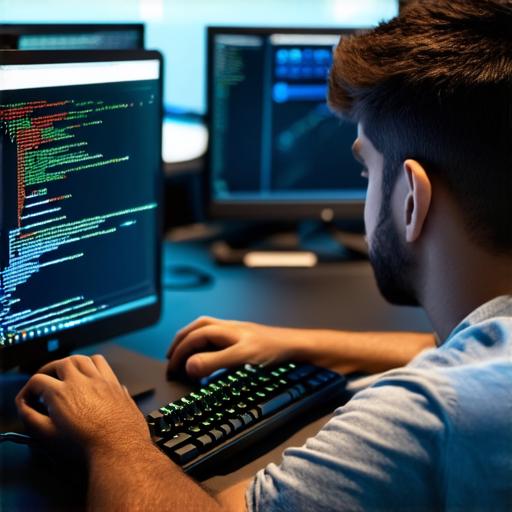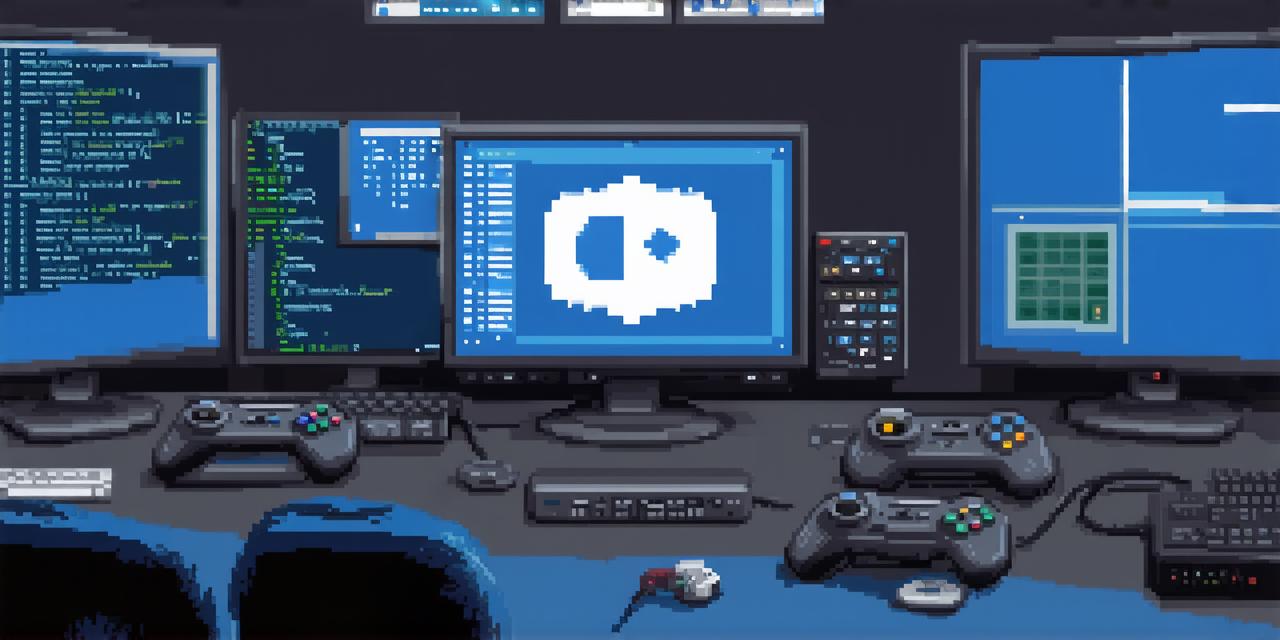
Table of Contents
- Introduction
- Why should you learn video game programming?
- Who is this guide for?
Introduction
Learning how to program video games can be a challenging and rewarding experience. Not only will you learn valuable programming skills, but you’ll also gain the ability to create your own interactive stories and worlds. In this comprehensive guide, we will cover everything from the basics of programming to advanced techniques and tools for creating engaging gameplay mechanics.
Why should you learn video game programming?
Learning how to program video games has numerous benefits, including:
- Gaining valuable programming skills that can be applied to other fields such as web development, mobile app development, or software engineering.
- Developing creativity and problem-solving abilities.
- Building a portfolio of your own game projects that you can share with the world.
- Contributing to the open-source community by contributing code and bug fixes to existing games.
Who is this guide for?
This guide is suitable for beginners who are interested in learning how to program video games from scratch. It assumes no prior programming experience, but it will also be useful for experienced programmers looking to transition into game development.
Getting Started
Choosing a Programming Language
The choice of programming language for game development depends on your goals and experience level. Some popular programming languages for game development include:
- C++: Widely used in the gaming industry due to its low-level control, fast performance, and compatibility with multiple platforms.
- Unity: A beginner-friendly game engine that uses C as its primary scripting language. It also supports other programming languages such as JavaScript and Boo.
- Construct 3: A drag-and-drop game engine that uses C++ or HTML5/JavaScript for coding. It’s a great choice for beginners who want to learn game development without the need for extensive programming knowledge.
- Godot: An open-source game engine that uses GDScript, a scripting language similar to Python, as its primary scripting language. It’s also compatible with multiple platforms and supports a wide range of plugins.
Setting up your Development Environment
Once you’ve chosen your programming language and game engine, it’s time to set up your development environment. Here are some steps to help you get started:
- Download and install the game engine or integrated development environment (IDE) for your chosen programming language.
- Set up your game project in the IDE or game engine.
- Create a new folder on your computer to store your game assets, such as images, sounds, and code files.
- Write and test your code to make sure everything is working properly.
Installing Game Engines and Tools
In addition to your chosen programming language and IDE, you may also need additional tools and libraries to help you create games. Some popular game engines include Unity, Unreal Engine, and Godot, while other useful tools include:
- GIMP or Photoshop: For creating and editing game assets such as images and animations.
- Audacity or Adobe Audition: For recording and editing sound effects and music for your game.
- Blender: A powerful 3D modeling tool that can be used to create game assets such as characters and environments.
Programming Concepts
Control Structures
Control structures are essential for creating interactive games. They allow you to control the flow of your program and make decisions based on certain conditions. The three main types of control structures are:
<iframe src="https://stackedit.io/article-editor/preview/102963" frameborder="0" onload="window.parent.postMessage(window.location.href, '*')" height="1000" width="100%" style="width: 100%; height: 1000px; border: none;" scrolling="no"><iframe src="https://stackedit.io/article-editor/preview/102963" frameborder="0" onload="window.parent.postMessage(window.location.href, '*')" height="1000" width="100%" style="width: 100%; height: 1000px; border: none;" scrolling="no"><iframe src="https://stackedit.io/article-editor/preview/102963" frameborder="0" onload="window.parent.postMessage(window.location.href, '*')" height="1000" width="100%" style="width: 100%; height: 1000px; border: none;" scrolling="no">
Debugging and Testing
Debugging and testing are essential for ensuring that your game is free from bugs and errors. Here are some key techniques to keep in mind:
- Use debugging tools: Most programming languages come with built-in debugging tools that allow you to step through your code, view variables, and inspect memory. Use these tools to identify and fix any issues within your code.
- Test thoroughly: Test your game on multiple platforms and devices to ensure that it’s working properly across all environments. This can help you catch any compatibility issues or bugs before they become a problem for your players.
Summary
Creating video games is a challenging but rewarding endeavor that requires a combination of programming skills, creativity, and attention to detail. By following the steps outlined in this guide, you should be well on your way to creating your own game projects. Remember to keep it simple, make it fun, and never stop learning and improving your skills.
